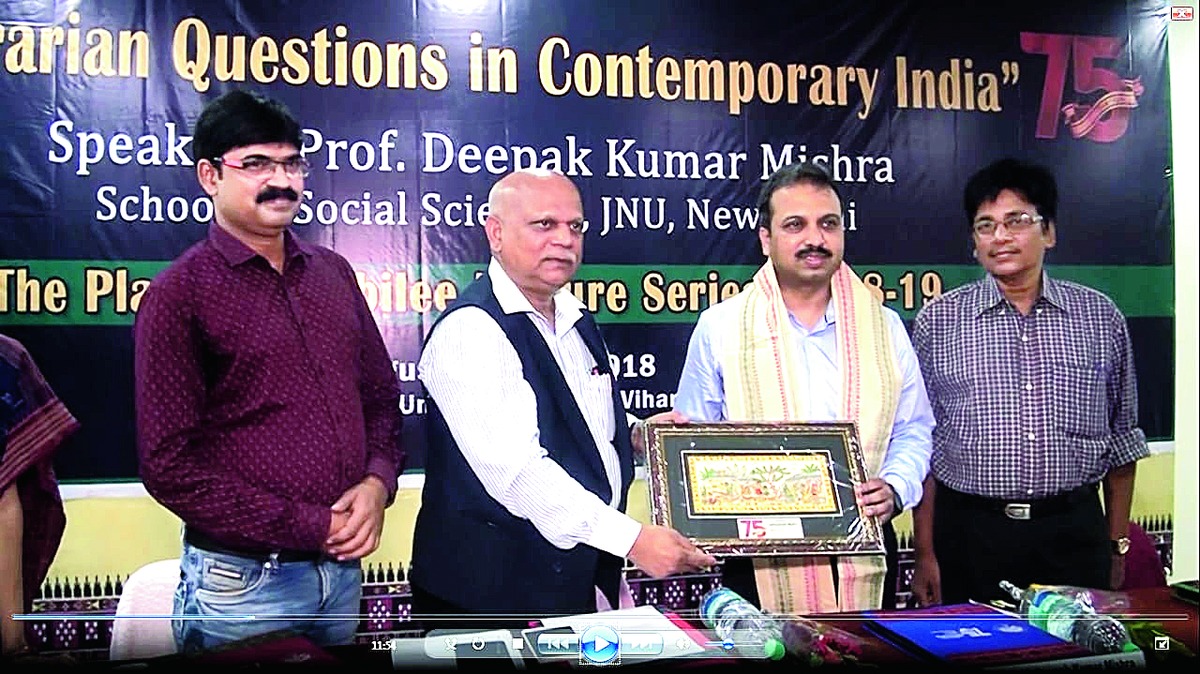
Sambalpur: India has not succeeded in transforming the lives of farmers despite respectable growth rates, huge amount of subsidies, increasing investment on farm activities, said Dipak Kumar Mishra, a professor of economics at Jawaharlal Nehru University in New Delhi.
Mishra, who was delivering the Platinum Jubilee lecture at Gangadhar Meher University here on Saturday, said the failure to improve farmers' condition was because of the structural nature of the cirisis.
"To stop farmers from committing suicide, we have to introduce structural changes in our agricultural sector and it would be possible only through technological and institutional changes," he said.
Speaking on "Agrarian Questions in Contemporary India", Mishra spoke at length about agrarian questions that India is facing at present.
He made a distinction between agrarian crisis and agricultural crisis through various examples. "Doubling of farmers' income by 2022 is a very good call and relevant objective of the present government. But there is a huge gap between theory and effectiveness of actual policy on the field," he said.
The state's intervention was necessary to bring structural transformation through a bottom-up approach . Everything cannot be left to the market because capitalism has a tendency to expand both externally and internally, Mishra said. He also talked about the importance of investment in creating effective irrigation facilities. Mishra replied to a volley of questions put forward by the students on the occasion.
Varsity vice-chancellor Atanu Kumar Pati, who presided over the lecture, raised the issue of environmental concerns of the BT-Cotton and other such genetically-modified seeds in the Indian context. BT-Cotton is an insect resistant transgenic crop designed to combat the bollworm. Research on the natural diversity should not disturb the traditional crop, he said. Genetically-modified food should not be allowed and there should be regulation to control it, as indicated by the Supreme Court, he said.











